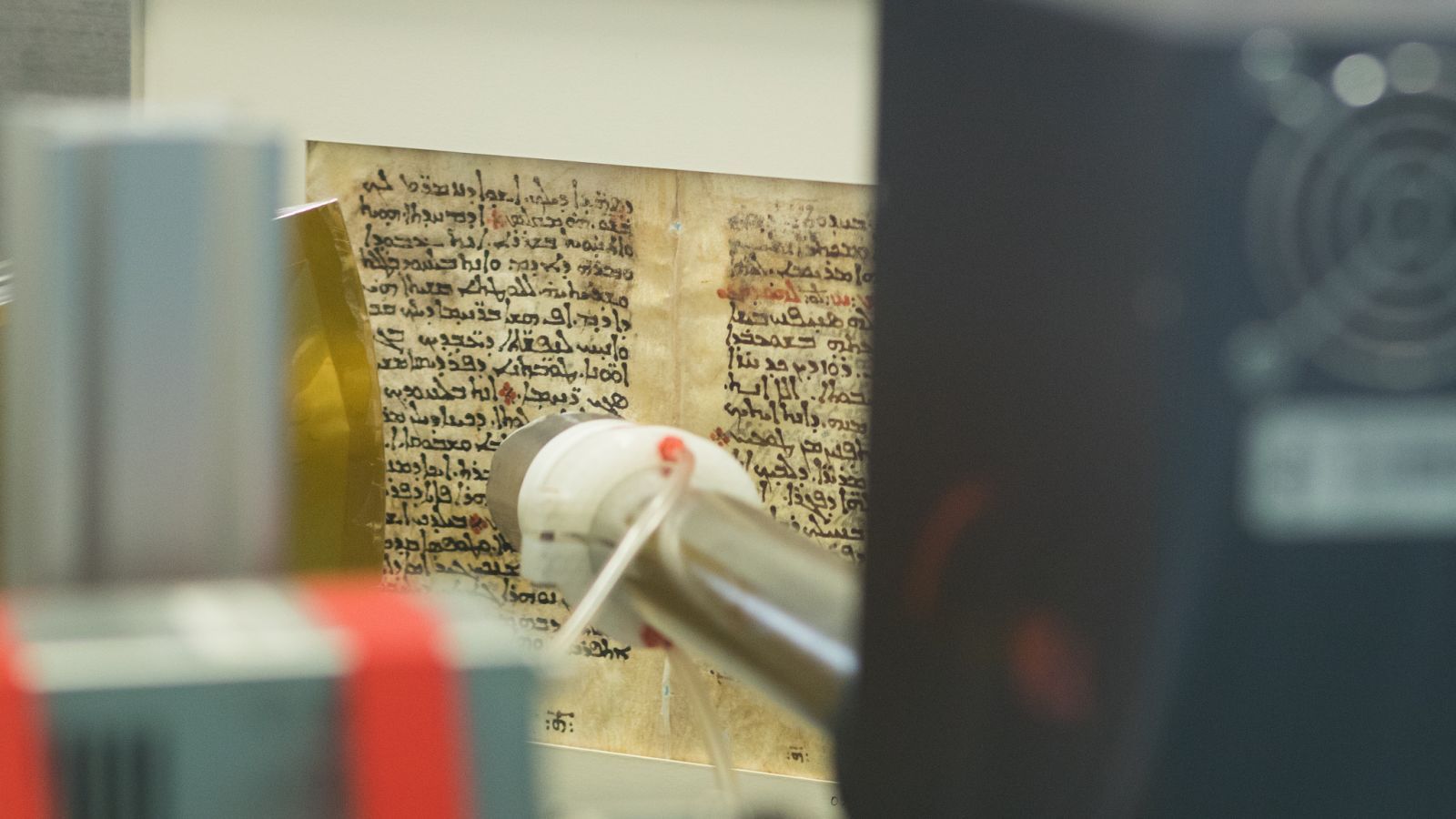If you’re a history buff, you might not know much particle physics. But the two fields share more in common than you’d think. X-rays from a high-energy lab have revealed ancient Greek medical texts that had been stripped and covered with religious writing.
Scientists at the Department of Energy’s SLAC National Accelerator Laboratory have long been using high-powered x-rays at their Stanford Synchrotron Radiation Lightsource (SSRL) to analyze ancient texts. This week, they’ll be revealing the text beneath 10th-century psalms from the St. Catherine’s Monastery on the Sinai Peninsula. The hidden words were a translation of writings by the ancient Greek doctor Galen.
Synchrotrons might sound complex, but they’re a relatively common kind of particle accelerator. Rather than crash particles together like researchers do at the Large Hadron Collider, the SSRL just accelerates electrons to nearly the speed of light and keeps them traveling around a many-sided polygon. Magnets on the straightaways and bends change the electrons’ directions, which produces a beam of high-energy x-rays.










Comments are closed.